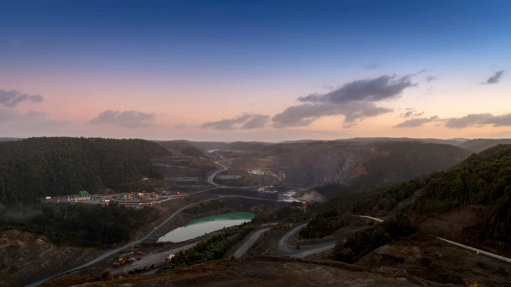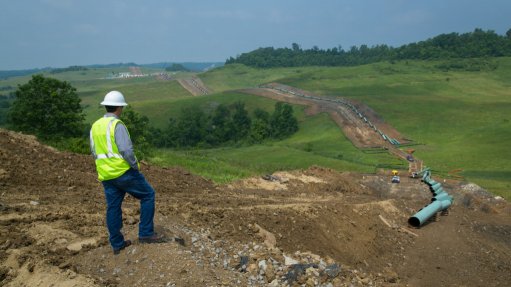Central African mining governance needs strengthening – Crisis Group

International Crisis Group's Central Africa project director Thierry Vircoulon tells Mining Weekly Online's Martin Creamer of the lack of mining governance in Central Africa. Camera Work: Shane Williams and Nicholas Boyd. Editing: Shane Williams.
JOHANNESBURG (miningweekly.com) – The mining governance in the Central African region remained weak and required strengthening to calm investor fears, International Crisis Group’s Central African project director Thierry Vircoulon said on Monday.
Vircoulon spoke to Mining Weekly Online on his way to Kimberley, where he is to attend the tenth anniversary of the Kimberley Process Certification Scheme, which was introduced to stem the flow of conflict diamonds.
He said that the full benefit of the considerable minerals endowment of the Democratic Republic of Congo (DRC) remained dependant on improved governance.
“Mining governance is still very weak,” he told Mining Weekly Online in in a video interview (see attached), adding that its implementation was needed to assure mining investors, who had the potential to contribute significantly to regional development.
The ongoing review process of the DRC’s mining code, which lacked transparency, continued to generate considerable nervousness and controversy at international level continued about the way mining contracts were awarded.
The Extractive Industry Transparency Initiative had suspended the DRC when $88-million of tax revenues went missing, and, despite the DRC authorities later reporting the finding of the missing millions, EITI was continuing to enforce its suspension.
By law, mining contracts had to be published and the International Monetary Fund last year suspended a loan to a company guilty of nondisclosure.
GOVERNMENT SHAREHOLDING
Some were expecting a level of 35% government free-carried ownership to become a prerequisite, not only in the DRC but also in other parts of Africa
“The 35% figure may become some sort of a standard,” Vircoulon said, adding that it was also the percentage being spoken about by governments in East Africa, where mining legislation was also being reviewed.
Another unresolved mining issue was the relationship between the mining companies and the artisanal mining communities, which had not attracted much DRC government mediation.
As a result, companies were having to deal directly with communities as they began commercial production, some of them in the troubled Kivus, where a new intervention brigade made up of South African soldiers was expected to be deployed.
Comments
Press Office
Announcements
What's On
Subscribe to improve your user experience...
Option 1 (equivalent of R125 a month):
Receive a weekly copy of Creamer Media's Engineering News & Mining Weekly magazine
(print copy for those in South Africa and e-magazine for those outside of South Africa)
Receive daily email newsletters
Access to full search results
Access archive of magazine back copies
Access to Projects in Progress
Access to ONE Research Report of your choice in PDF format
Option 2 (equivalent of R375 a month):
All benefits from Option 1
PLUS
Access to Creamer Media's Research Channel Africa for ALL Research Reports, in PDF format, on various industrial and mining sectors
including Electricity; Water; Energy Transition; Hydrogen; Roads, Rail and Ports; Coal; Gold; Platinum; Battery Metals; etc.
Already a subscriber?
Forgotten your password?
Receive weekly copy of Creamer Media's Engineering News & Mining Weekly magazine (print copy for those in South Africa and e-magazine for those outside of South Africa)
➕
Recieve daily email newsletters
➕
Access to full search results
➕
Access archive of magazine back copies
➕
Access to Projects in Progress
➕
Access to ONE Research Report of your choice in PDF format
RESEARCH CHANNEL AFRICA
R4500 (equivalent of R375 a month)
SUBSCRIBEAll benefits from Option 1
➕
Access to Creamer Media's Research Channel Africa for ALL Research Reports on various industrial and mining sectors, in PDF format, including on:
Electricity
➕
Water
➕
Energy Transition
➕
Hydrogen
➕
Roads, Rail and Ports
➕
Coal
➕
Gold
➕
Platinum
➕
Battery Metals
➕
etc.
Receive all benefits from Option 1 or Option 2 delivered to numerous people at your company
➕
Multiple User names and Passwords for simultaneous log-ins
➕
Intranet integration access to all in your organisation



















